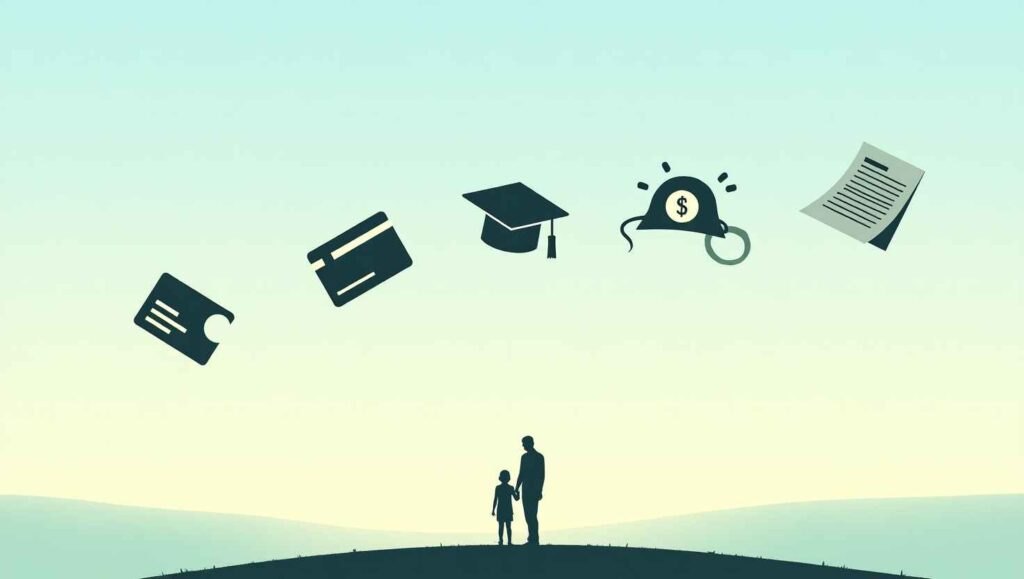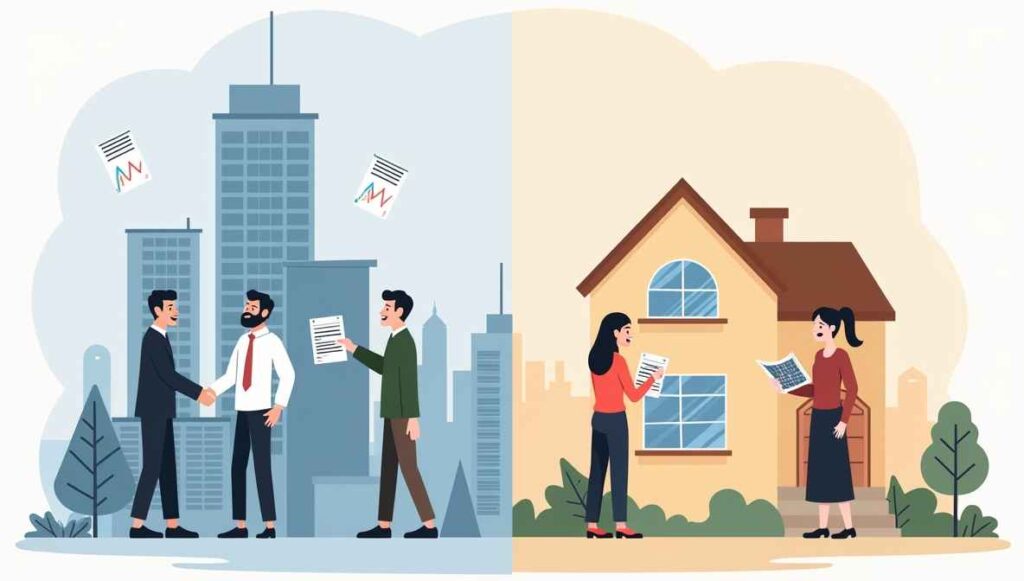
Table of Contents
Raising kids alone while buried in debt is crushing the peace of mind
Losing sleep over credit card statements, falling behind on payments, or worried your financial future is slipping away—here is your reset button.
We break down real debt forgiveness options that actually work in 2025 and proven strategies for single parents to reduce or eliminate debt in 2025. Plus, we’ll bust some myths, share expert-backed strategies, and link you to tools that can ease your burden.
🔍The Problem
Single parent often means doing twice the work on half the income. Debt piles up—not because of irresponsibility—but because life happens. Emergencies, childcare, housing costs… it adds up.
Quick Answer: Debt forgiveness means getting part or all of your debt legally erased, reduced, or made more manageable based on your situation and ability to pay.
So what really works in 2025?
✅ What is Debt Forgiveness?
Debt forgiveness is when a lender agrees to cancel some or all of your debt. This isn’t a myth or a scam—it’s real, legal, and increasingly common for single parents under financial stress.
Types of Debt That Can Be Forgiven:
- Credit card debt
- Medical bills
- Private student loans
- Personal loans
- Utility bills and old rent

Some loans—like federal student loans—have specific forgiveness programs. Others may require negotiation or legal help.
💡 Top 5 Debt Forgiveness Programs for Single Parents (2025)
1. Debt Settlement Services
These programs negotiate with your creditors to reduce what you owe. You pay a lump sum or structured payments. Many parents see 30–50% of balances forgiven.
Best for: Credit cards, personal loans, collections
Trusted Providers: National Debt Relief, Freedom Debt Relief
2. Nonprofit Credit Counseling + DMPs
Debt Management Plans (DMPs) consolidate your unsecured debt into one monthly payment at a reduced interest rate.
Best for: Those with stable income but overwhelming debt
Cost: Often free or low-cost from certified nonprofits
3. Bankruptcy (Chapter 7 or 13)
Last-resort but sometimes the most honest route to a reset. Chapter 7 can wipe out unsecured debt completely.
Best for: No realistic way to repay debt
Important: Talk to a bankruptcy attorney before choosing this option.
4. Student Loan Forgiveness for Parents
If you took out Parent PLUS Loans or have your own federal loans, check for:
- Income-Driven Repayment (IDR) forgiveness
- Public Service Loan Forgiveness (PSLF) if you work in government/nonprofit
Quick Answer: Federal student loans may be forgiven after 10–25 years depending on your income and job.
5. State + Local Forgiveness Programs
Some states and cities offer targeted help for parents, especially those affected by COVID-19, job loss, or housing instability.
Search your zip code + “debt relief for single parent” on Google or Quora for local resources.
Let that sink in.
Many single parents are carrying debt because they chose to protect their children, keep a roof overhead, or survive after separation or tragedy.
Join communities on Reddit, Facebook, or forums like Single Mothers by Choice or the r/povertyfinance subreddit. You’re not alone—and you don’t need to solve everything overnight.
“Being in debt isn’t a moral issue. It’s a math issue—and math has solutions.” – Dave Ramsey
💳 How Much Credit Card Debt is Too Much?
Quick Answer: If you’re using over 30% of your credit limit or can’t afford minimum payments, that’s too much.
In 2025, the average U.S. adult carries ~$6,000 in credit card debt. For single parents, it can be even higher.
Here’s how to assess your situation:
| Metric | Safe Range | Danger Zone |
|---|---|---|
| Credit Utilization | Under 30% | Over 50% |
| Monthly Payment vs. Income | Under 10% | Over 20% |
| Stress Level (yes, really) | Low to manageable | Causing insomnia |
💼 Corporate Debt Restructuring vs. Personal Debt

You may hear the term “corporate debt restructuring” — but how does it relate?
This process is used by companies to renegotiate or forgive debts with banks, often during financial distress.
Quick Answer: While corporate tools are different, the concept is the same: restructure, reduce, or remove debt legally to avoid collapse.
The good news? Nonprofits and debt attorneys now offer similar restructuring help for individuals—especially single-parent households.
🔗 Real Resources & Tools
Here are tools single parents are using to crush debt in 2025:
| Resource | Type | Best For |
|---|---|---|
| Finnaset.com | Blog + Guides | DIY tips, inspiration, expert insights |
| National Foundation for Credit Counseling | Nonprofit Hotline | Credit counseling & DMPs |
| Quora “Debt Help for Single Parent” | Forum Threads | Peer support, fresh ideas |
| Reddit: r/povertyfinance | Community Support | Honest advice, relatable stories |
| StudentAid.gov | Gov Resource | Federal loan forgiveness options |
🔄 Refresh Your Plan: Step-by-Step
Step 1: Audit Your Debt
- List every account, balance, and interest rate
- Use free tools like Credit Karma or Mint
Step 2: Prioritize Based on Threat
- Housing and car = top priority
- High-interest cards = next
Step 3: Contact Creditors or a Nonprofit
- Ask about hardship programs
- Use official email templates (Finnaset has them)
Step 4: Choose a Forgiveness Path
- Settlement, DMP, IDR, bankruptcy?
- Decide based on income, urgency, and goals
Step 5: Stick to One Strategy + Get Support
- Don’t mix strategies (it delays results)
- Join a debt support community
🙋♀️ Frequently Asked Questions (FAQs)
Q: Will debt forgiveness hurt my credit score?
Quick Answer: Yes, in the short term. But long term, it can improve your credit if it helps you stop missing payments.
Q: Can I get debt forgiveness if I’m unemployed?
Quick Answer: Yes. Many hardship programs are income-based or job-loss-triggered.
Q: Is debt settlement legit?
Quick Answer: Yes, when done with certified companies and written agreements.
Q: What’s better: DMP or bankruptcy?
Quick Answer: DMP is better if you have income. Bankruptcy is for when there’s no way to repay.
Written by the financial team at Finnaset.com—m—helping single parents rewrite their money story.
Need more help? Check our guide on student loan forgiveness options for parents in 2025.